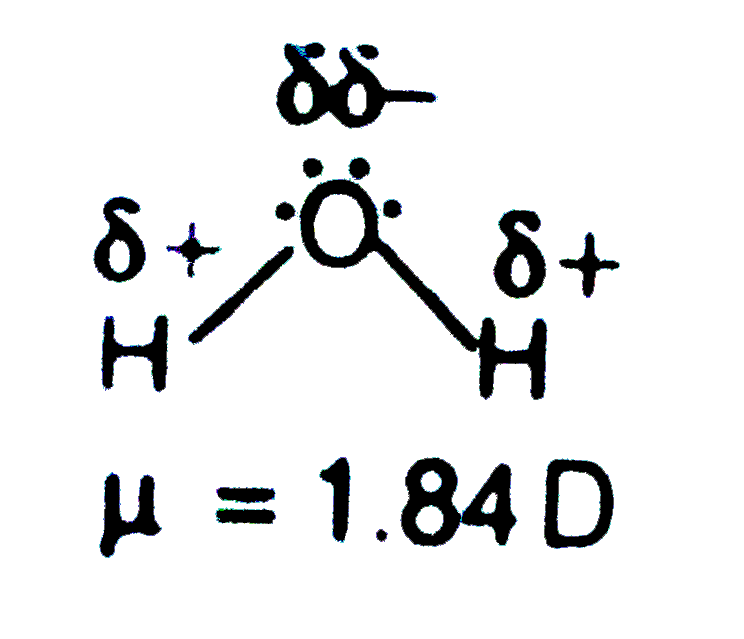Dipole-dipole forces act between the molecules possessing permanent dipole. Ends of dipoles possess 'partial charges'. The partial charge is
A
more than unit electronic charge
B
equal to unit electronic charge
C
less than unit electronic charge
D
double the unit electronic charge
Video Solution
Text Solution
The correct Answer is:C
Dipole-dipole forces act between the molecules possessing permanent dipole and ends of dipoles possess 'partial charges'. Partial charges present on ends of a dipole are always less than the unit electronic charge.

|
Topper's Solved these Questions
- STATES OF MATTERBOOK - NCERT EXEMPLARCHAPTER - STATES OF MATTEREXERCISE - MCQ More Than One Option
4 Videos
- STATES OF MATTERBOOK - NCERT EXEMPLARCHAPTER - STATES OF MATTEREXERCISE - Short Answer Type Question
23 Videos
- SOME BASIC CONCEPTS OF CHEMISTRYBOOK - NCERT EXEMPLARCHAPTER - SOME BASIC CONCEPTS OF CHEMISTRYEXERCISE - All Questions
45 Videos
- STRUCTURE OF ATOMBOOK - NCERT EXEMPLARCHAPTER - STRUCTURE OF ATOMEXERCISE - All Questions
53 Videos
Similar Questions
Knowledge Check
Dipole-dipole force act between the molecule possessing
Atemporary dipoleBpermanent dipoleCsometimes (1) and sometimes (2)DNeither (1) nor (2)A molecule possessing dipole moment is
ACH4BH2OCBF3DCO2The molecule having permanent dipole moment is
ASF4BXeF4CNH3DBF3
Which of the following molecules have permanent dipole moment ?
View SolutionWhich of the following molecules possess zero dipole moment?
View SolutionWhich of the following molecule is associated with permanent dipole moment?
View SolutionOf the following molecules, the one which has permanent dipole moment is
View SolutionWhich of the following molecule is polar (i.e., has permanent dipole moment)?
View Solution
